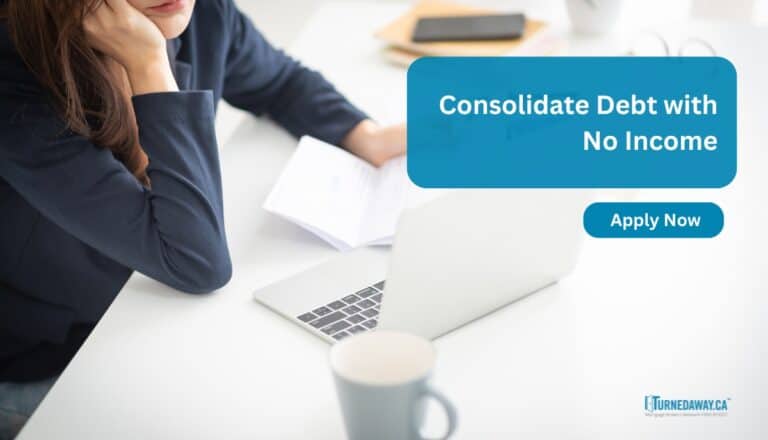Why Debt Consolidation Could Be the Game-Changer You Need

Debt consolidation is more than just combining loans; it’s about creating a manageable path toward financial freedom. Unlike guides, this post dives deeper into the potential of debt consolidation to revolutionize the way you approach debt.
What Is Debt Consolidation?
At its core, debt consolidation involves merging multiple debts into one single loan, often with a lower interest rate or longer repayment term. It aims to simplify your financial life by combining various debt types, such as credit cards, medical bills, or personal loans, into a single monthly payment.
The appeal? Managing one payment instead of several. This not only makes budgeting easier but also alleviates the stress of juggling multiple due dates and creditor calls.
How Debt Consolidation Works
Step 1: Evaluate Your Debts
Take stock of your existing debts. List interest rates, balances, and monthly payments for each. The goal is to determine whether consolidating these debts into one is financially beneficial.
Step 2: Choose a Consolidation Option
Debt consolidation comes in many forms. Options include a personal loan, balance transfer credit cards, or a home equity loan. Each choice has pros and cons, depending on your financial situation.
Step 3: Apply for a Consolidation Loan
Once you decide on an option, apply for a consolidation loan or credit line. Be prepared to share details about your income, expenses, and credit history with the lender.
Step 4: Use the Loan to Pay Off Existing Debts
Once approved, use the proceeds of the consolidation loan to clear the debts you listed earlier. This step ensures you’re left with just one payment to handle moving forward.
Step 5: Stick to Your New Repayment Plan
Consolidation simplifies repayments, but it’s your discipline that will ensure the strategy works. Timely payments and avoiding new debt are crucial for success.
Benefits of Debt Consolidation
Debt consolidation doesn’t just simplify your financial life; it offers several other benefits that make it a transformational tool for many individuals.
1. Simplified Money Management
Tracking multiple payments, balancing different due dates, and calculating various interest rates can be exhausting. Consolidation streamlines these tasks, leaving you with one clear payment per month.
2. Lower Interest Rates
If your existing debts have high interest rates (such as store credit cards), a consolidation loan could offer a significantly lower rate. Over time, this reduces the total amount you’ll pay in interest.
3. Improved Credit Score Over Time
Initially, applying for a consolidation loan may cause a small dip in your credit score. But as you pay down balances and show consistent payments, your credit score is likely to improve in the long term.
4. Reduced Stress
One monthly invoice is easier to track and far less daunting than a stack of bills. Combined with lower payments, this can dramatically reduce financial stress.
5. Faster Debt Payoff
Debt consolidation can potentially shorten the time it takes to become debt-free. Lower interest rates and fixed terms help streamline the repayment process.
Is Debt Consolidation the Right Choice?
Debt consolidation isn’t for everyone. Here are some scenarios where it could (or couldn’t) work for you.
When Debt Consolidation Might Work
- You have good credit and can secure a low-interest consolidation loan.
- You’re struggling to keep up with multiple payment schedules.
- Consolidation would lead to overall savings in interest payments.
- You’re motivated to stick to a structured repayment schedule.
When Debt Consolidation Might Not Work
- Your spending habits consistently lead to excessive debt.
- The consolidation loan offers unfavorable terms compared to your existing debts.
- You’re not willing to make the lifestyle changes needed to avoid falling back into debt.
Debt Consolidation vs. Debt Relief Programs
While debt consolidation focuses on managing payments through a single loan, debt relief programs aim to directly reduce the total amount owed. This usually involves negotiating with creditors to settle for a fraction of the original balance.
Debt consolidation is generally better for those who want a structured repayment plan without significantly harming their credit score. Debt relief, on the other hand, is often considered a last resort for individuals in significant financial distress.
If you’re unsure whether debt consolidation or debt relief is right for you, working with a financial advisor can help clarify your options.
How to Start with Debt Consolidation
If you’re ready to explore debt consolidation as a solution for your financial challenges, here are some actionable steps to get started today.
1. Check Your Credit Score
Your credit score determines the interest rate you’ll qualify for. Higher scores often result in better rates.
2. Shop Around
Compare lenders and loan terms. Look for transparency around fees and ensure the loan aligns with your financial goals.
3. Calculate Potential Savings
Use a loan calculator to determine how much you’d save by consolidating debts under a single loan. Evaluate the interest rate, monthly payments, and repayment term.
4. Consider Working with Professionals
Financial experts or reputable companies that specialize in debt management can provide personalized solutions to fit your unique situation.
Take Control of Your Financial Future
Debt doesn’t have to be permanent, and with the right support, freedom is within reach. Debt consolidation is a smart way to streamline your payments, lower interest rates, and regain control without the overwhelm of juggling multiple accounts.
Greenwise Financial Solutions offers tailored debt consolidation programs designed to reduce stress, simplify your finances, and put you on a clear path toward lasting financial stability. Their expert guidance ensures every step is informed, manageable, and built around your unique goals.
Don’t let debt hold you back any longer—partner with Greenwise Financial Solutions and take the first step toward a stronger financial future today.


